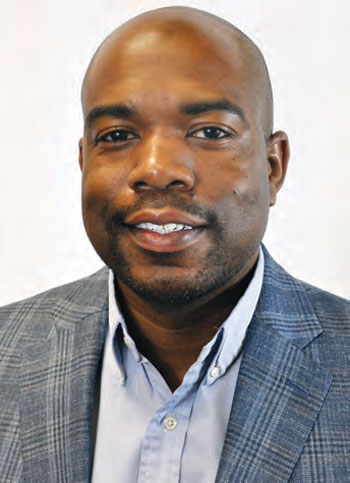By Ira E. Murray, PhD

Meeting needs means thinking intersectionally
Like most mothers-to-be, Rozetta Womack was excited to hear the news that she was pregnant with her now five-year-old son. However, as her pregnancy progressed and complications began to emerge, Rozetta found it difficult to maintain her employment and eventually had to resign her job to care for herself and her son, who was born prematurely. Rozetta ultimately found herself out of work for over a year.
Rozetta was ready to get back to work but needed care for her son. An associate told her about a daycare voucher program and a job-training program through the Prosperity Center of Greater Jackson, a one-stop financial wellness and human-service center United Way helped develop with Midtown Partners and the Walker Foundation. Through those programs, Rozetta was able to return to work and ultimately graduate from Hinds Community College with a new degree in culinary arts. Rozetta is also saving to purchase a home for her family through the Power to Save program at the Prosperity Center.
When I met Rozetta for the first time earlier this year and she shared her heart-wrenching story of love, resilience and determination, I knew that I had made the correct decision to return to Jackson, Mississippi, to lead United Way of the Capital Area. When I was offered the opportunity to take the helm at United Way, my wife Tracy and I prayed that God would lead us in the right direction so we could have the most significant impact in the world that we could. Little did we know that God would lead back from whence we came.
Stories like Rozetta’s are why we at United Way do the work that we do every day. While each United Way is a local, autonomous organization, we are bound by a shared mission to mobilize the caring power of communities to advance the common good. At United Way of the Capital Area, we work toward this mission in Hinds, Madison, and Rankin counties through three key areas — education, income and health.
Rozetta’s story encapsulates why holistic family support is vital to helping families become self-sufficient. Some families need social safety nets to stop a seemingly endless fall toward poverty. Many, however, need a trampoline to not only catch them when they fall, but also help propel them back toward the socioeconomic mainstream. We were able to help provide Rozetta and her family with that trampoline by assisting her with finding a quality, affordable childcare program that enabled her to find a job-training program for a family-supporting career she loves.
“I took advantage of the daycare voucher so I could go back to work and my son would be well-taken care of,” said Womack. For many families, lack of quality, affordable childcare options can prevent parents from finding full-time, gainful employment. Moreover, research suggests that 80 percent of all brain development happens in the first five years of life, and children who enter kindergarten with requisite pre-literacy skills (e.g. identifying letters, shapes, colors and communicate in full sentences) have a much higher chance of excelling in school than their peers who do not enter kindergarten with such skills. Thus, providing Rozetta with a daycare voucher did not simply enable her to enter a job-training program, but also provided her son with an important foundation for future success in life.
Stories like Rozetta’s are, unfortunately, commonplace today. Far too often, multiple factors converge to create compromising socioeconomic circumstances for children and families. In Rozetta’s case, a difficult pregnancy caused her to lose her job, which impeded her ability to both find quality, affordable early childhood development opportunities for her son and return to the workforce herself.
As we move toward a vision of what social services should look like to meet the challenges of the 21st century, it is imperative that we consider the intersectional nature of socioeconomic challenges as well as the comprehensiveness required to meet those challenges.
Ira E. Murray, PhD is president and CEO of the United Way of the Capital Area, Inc.